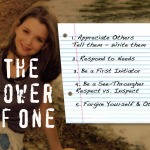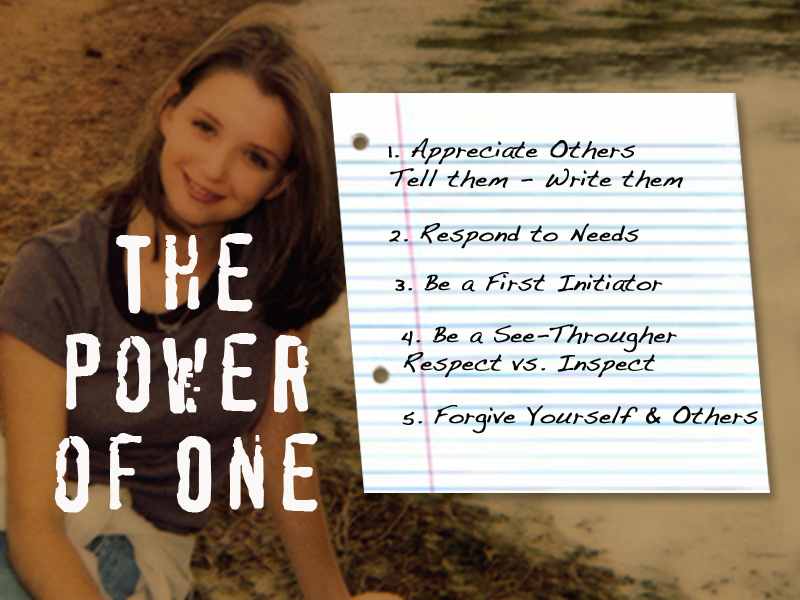When Rachel’s Challenge is mentioned, many people think of things like kindness  towards others, treating others as you would like to be treated, and many other moral lessons. These lessons are pounded into the heads of students across the country to create a kinder, more considerate generation.
towards others, treating others as you would like to be treated, and many other moral lessons. These lessons are pounded into the heads of students across the country to create a kinder, more considerate generation.
Rachel’s Challenge returned to HHS. For some, this assembly on a Friday was an excuse to get out of class for an hour or so. For others, the assembly served as a powerful reminder of what it truly means to accept Rachel’s Challenge.
Everyone knows how the assembly goes: a representative of the Rachel’s Challenge Committee stands in front of the school and speaks about how easy it is to be kind to others and make them feel important, and then gives students five ways to challenge themselves to be a better person: “Look For The Best In Others”, “Dream Big”, “Choose Positive Influences”, “Speak With Kindness”, and “Start Your Own Chain Reaction.”
But it isn’t until a person is a part of the discussion that takes place after the assembly that they see just how powerful of an effect Rachel’s Challenge can have on students.
Rachel’s Challenge goes on to teach students how others hide their problems from each other.
“It’s impactful the way they talk about how others may be feeling,” says senior Patricia Przydzial. “Someone can just be wearing a smile, but really be feeling horrible.”
Another important point that Rachel’s Challenge stresses is to never take others for granted- don’t miss your chance to tell those you care about how much you love them. You may not get to tell them tomorrow.
After the assembly, Senior Jessica Jamie said, teary-eyed, “It hit me hard. You take things for granted and don’t realize what you have until it’s gone.”
For many students, this one point of Rachel’s Challenge seemed to resonate the most.
“I love everybody in this school,” says senior Royale Weatherspoon. “I’ve always just been too afraid to say it.”
Rachel’s Challenge brings a tear to the eyes of even the most hardened students many times. It serves as a reminder that everyone is only human, no more and no less.
Often people forget how treating others can create a “chain reaction of kindness” in the lives of many people.
“It takes [an assembly] like this to remind us to not take others for granted.” says Karen Bula, English teacher at HHS.
Bula believes that September 11 is another example of another tragedy that many must be reminded about, and the emotions that come along with the falling of the World Trade Center. “You can’t feel guilty for living life like a human being. We forget about these huge events that take place, and vow to make a change as a result of them. But it usually only lasts temporarily, and soon people are back to living life by their normal routine.”
In the spring of 2012, HHS started the Friends of Rachel club. This club was meant to serve as a constant reminder to everyone on how everyone should be treating each other. This did not last, however, due to the club being started later in the school year, and was never picked up again by HHS. That is, until this year.
The Friends of Rachel club is being officially reinstalled this year. Of the thousands of students at HHS, a mere 100 were chosen to be a part of the Friends of Rachel.
Anne Sharkey, Social Studies teacher at HHS, said that, “The Friends of Rachel club is designed to empower students to make positive changes within the school, and make it a much more enjoyable place to learn.”
When asked about how the club will be kept alive, Sharkey said that, “The Friends of Rachel is being formed early on in hopes that its momentum will carry on throughout the entire school year.”
Rachel’s Challenge may have come and gone from HHS, but its lessons will remain embodied within the Friends of Rachel club, reminding us of exactly what it means to start a “chain reaction of kindness.”

